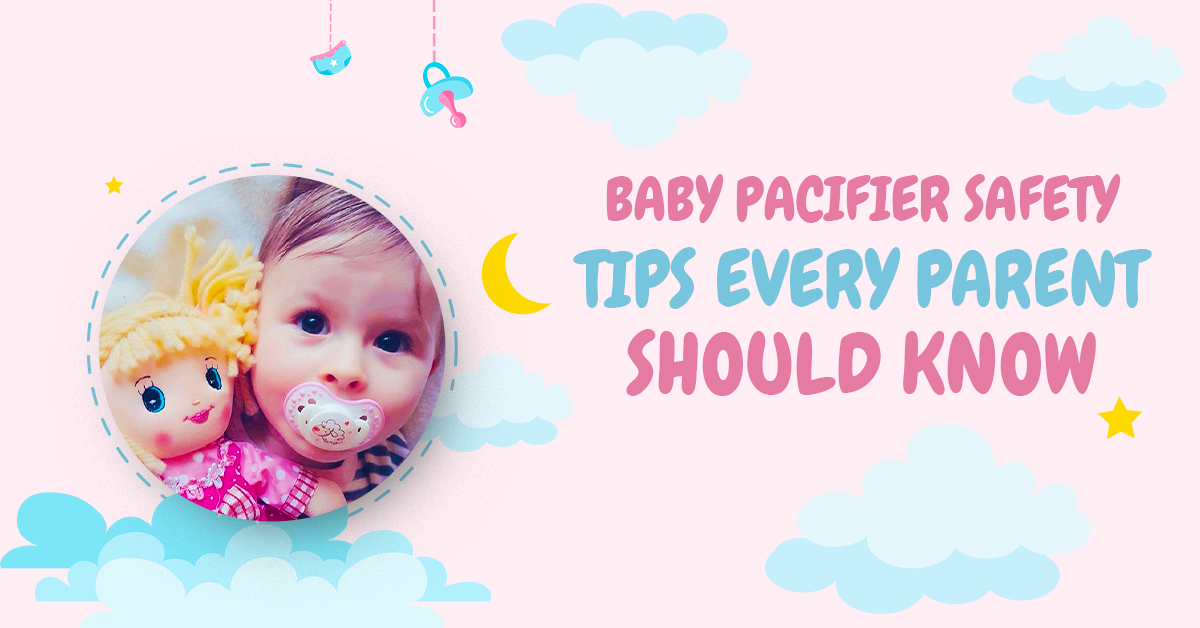

Baby Pacifier Safety: 10 Tips Every Parent Should Know
As a parent, keeping your baby safe is always a top priority. One item that often brings comfort to babies and parents alike is the baby pacifier. It is often simply called a pacifier or a Soft Infant Soothers. It is a small, nipple-shaped device made of rubber or silicone. Many brands use materials keeping in mind about the safety and security of infants and toddlers.
One of the brands, like, Kasem International make sure that their Natural Shape Pacifiers are made up of materials that are BPA-free and safe.
It is designed to be sucked or held in the mouth by infants. It is to provide comfort and satisfy their natural urge to suck. Pacifiers come in various shapes, sizes, and designs. But they typically consist of a nipple, a shield or guard that prevents it from being swallowed. Sometimes a handle or ring is attached for easy holding or attachment.
Pacifiers for babies are a common sight in every households and nurseries. It is a one stop Newborn Soothing Solution. Pacifiers offer a sense of comfort and security for the babies. For parents these are life savours in real time.
Advantages of Baby Pacifiers
● Using a pacifier is better for your baby’s teeth than sucking on their thumb or fingers.
● Parents can decide when to give their baby a pacifier, but it’s tough to stop thumb sucking.
● When it’s time to stop using a pacifier, you can toss it away, but you can’t do that with a thumb!
● Recent medical studies show that using a pacifier might lower the chances of sudden infant death syndrome (SIDS) or crib death.
● They are quite handy while travelling, be it on train, car, bus or flight.
Disadvantages of Baby Pacifiers
● Using a pacifier incorrectly can cause issues with breastfeeding, teeth (like cavities and overbite), and maybe even ear infections.
● Homemade baby pacifier, one with sweeteners, could harm the baby.
Just like any item your baby interacts with, it’s important for parents to be cautious when selecting and using baby pacifier. By following the tips provided below in this blog, a pacifier can truly become a trusted ally for you and your baby.
Baby Pacifier Safety Tips To Keep In Mind by Parents
1.Not all pacifiers are same. Look for pacifiers that are specifically designed for babies. They should have features like, a shield wider than your baby’s mouth. They should have ventilation holes to prevent suffocation.
2. Before each use, carefully check the pacifier for any signs of wear and tear, such as cracks, tears, or holes. If you notice any damage, discard the pacifier immediately and replace it with a new one.
3. Ensure that the pacifier is the appropriate size for your baby’s age and stage of development. Using a pacifier that is too small or too large can cause choking hazards.
4. Clean the pacifier regularly to remove dirt, germs, and bacteria. Wash it with warm, soapy water. Rinse thoroughly before giving it to your baby. Avoid using harsh chemicals or antibacterial soaps.
5. Sterilize the pacifier regularly. This is especially if your baby is prone to infections or dropped it on the floor. Sterilize Hygienic Baby Soothers as recommended by the manufacturer. This can help kill bacteria.
6. Do not dip the pacifier in sweet substances like honey or sugar to soothe your baby. This will lead to tooth decay and other oral health issues. It will also increase the risk of choking.
7. Limit the use of pacifiers, especially once your baby is older and proactive. Prolonged usage of pacifier use can interfere with speech development.
8. Keep in check to prevent the pacifier from falling on the floor or getting lost. Never tie a pacifier around a baby’s neck. You can consider using a pacifier clip that attaches securely to your baby’s clothing. Make sure the clip is free from small parts to avoid any choking hazard.
9. Pacifiers are not meant to last forever. Replace the pacifier every two to four months or when damaged. Using an old or worn-out pacifier increases the risk of choking. This introduces harmful bacteria into your baby’s mouth.
10. If you witness anything that is concerning, then consult with your pediatrician. They can provide personalized advice and recommendations based on your baby’s unique needs and circumstances.
Conclusion
At the end, it is your baby. You have to know what is right and wrong for your little one. You have to keep in mind that safety of your baby plays the crucial factor here. Yes, baby pacifier saves parents in fussy moments. By following the above mentioned tips will only enhance the quality of the period while using them. Remember, a happy and safe baby means a happy family!

 April 3, 2024
April 3, 2024